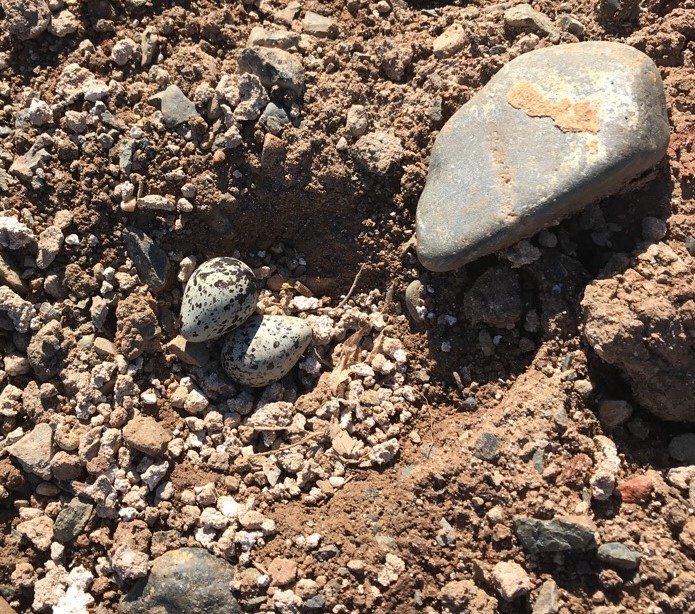This time of year, several species of birds can be found nesting on the ground. When moving through grasslands, it is important to take care not to inadvertently crush a bird’s nest or chicks.
About Ground Nesting Birds
There are several bird species that make their nests on the ground on the reserve, including the mourning dove, killdeer, horned lark, western meadowlark, American avocet, Canada goose, and lesser nighthawk, to name a few! Ground nests come in all different shapes and sizes from a small nest lined with feathers or indent in the ground to a burrow. Birds make a nest to protect their eggs and keep them warm during the incubation period. Eggs on the ground are vulnerable to predation which means many birds spend much of their time guarding their nests. When birds first leave the nest, they are often not yet able to fly. They will remain on the ground, and the parents will come back to continue feeding them. When encountering a ground nest without the parents present, note that while the eggs or young may appear to be alone, they are typically not abandoned, orphaned, sick, or injured. When encountering a ground nest with the parents present, many of these birds will display protective behaviors. For example, when encountering a killdeer nest, one parent will squawk loudly, and the other parent will fake a broken wing to in an effort to distract from the nest.
What You Can Do!
If you encounter a nest, it is best to avoid the nest area and give the birds plenty of space! If you see a ground nest with eggs or baby birds alone, the nest should be left alone, and baby birds should not be moved or handled so that their parents can continue to come back to care for them. It is also best to leave the area immediately so the parents can continue to care for their young safely. Leaving baby birds where you found them is the best way to ensure that they continue to get the care they need to survive during this vulnerable period of time in their life cycles, when predators, and even people can pose a serious danger. Please help avoid ground nests by staying on established roads and trails when moving through grasslands.
For more great bird photos, check out our corresponding Facebook post on our University of California, Merced Vernal Pools Reserve page!



